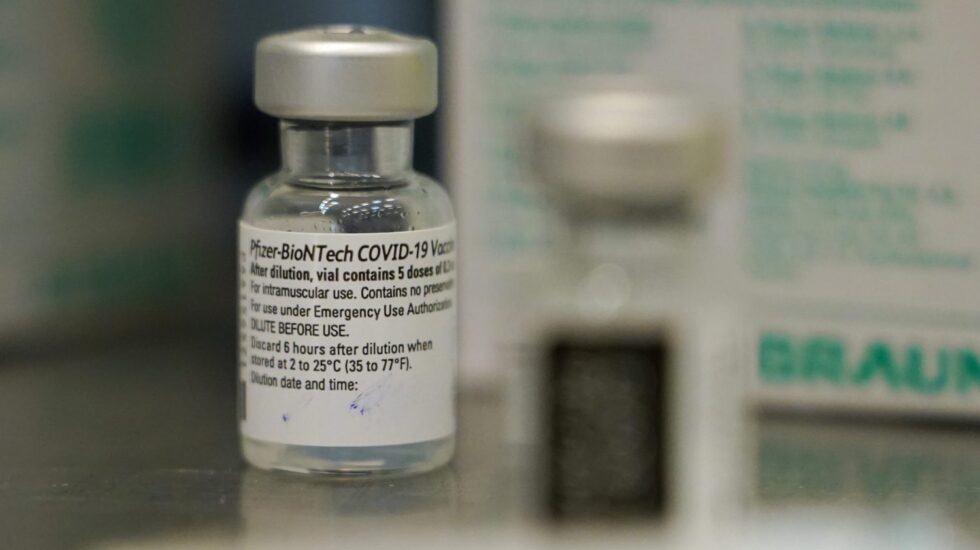A panel of advisers for the Food and Drug Administration on Friday rejected an application by Pfizer to add a third booster shot for its COVID-19 vaccine regimen for Americans aged 16 and older.
The FDA panel turned down the request by an overwhelming 16-2 vote. The White House had hoped the FDA and the CDC would give the OK to a third shot of the vaccine so it could begin distributing booster shots to Pfizer recipients as soon as next week. While the panel’s decision is not final — the final call belongs to the FDA — it’s highly unlikely the agency will go against the decision reached by the advisory group. The FDA is expected to issue its decision next week.
The New York Times writes that the denial of the boosters for most Americans has to be a disappointment for President Biden.
The negative vote was the latest in a series of setbacks for President Biden’s booster plan since he first announced it a month ago. Mr. Biden said at the time that he wanted most adults who had gotten a second Pfizer or Moderna vaccine at least eight months ago to start receiving booster shots the week of Sept. 20.
But two weeks after his announcement, leaders of the F.D.A. and the C.D.C. told the White House that it would be impossible to authorize booster shots for recipients of the Moderna vaccine that soon. It is now unclear whether extra injections will be offered to Pfizer recipients, and if so, to how many.
The news wasn’t all bad for the Biden Administration, however. The panel later unanimously approved authorizing booster does of the Pfizer vaccine for those over 65 who have been fully vaccinated at least six months, or who are at high risk.
The panel’s independent experts, which includes infectious disease doctors and statisticians, argued that the booster shots are not needed for much of the vaccinated population under the age of 65 because the vaccines still appear to be providing robust protection against severe COVID-19 infection and hospitalizations in the U.S.
“It’s unclear that everyone needs to be boosted, other than a subset of the population that clearly would be at high risk for serious disease.”
Dr. Michael G. Kurilla, National Institutes of health
